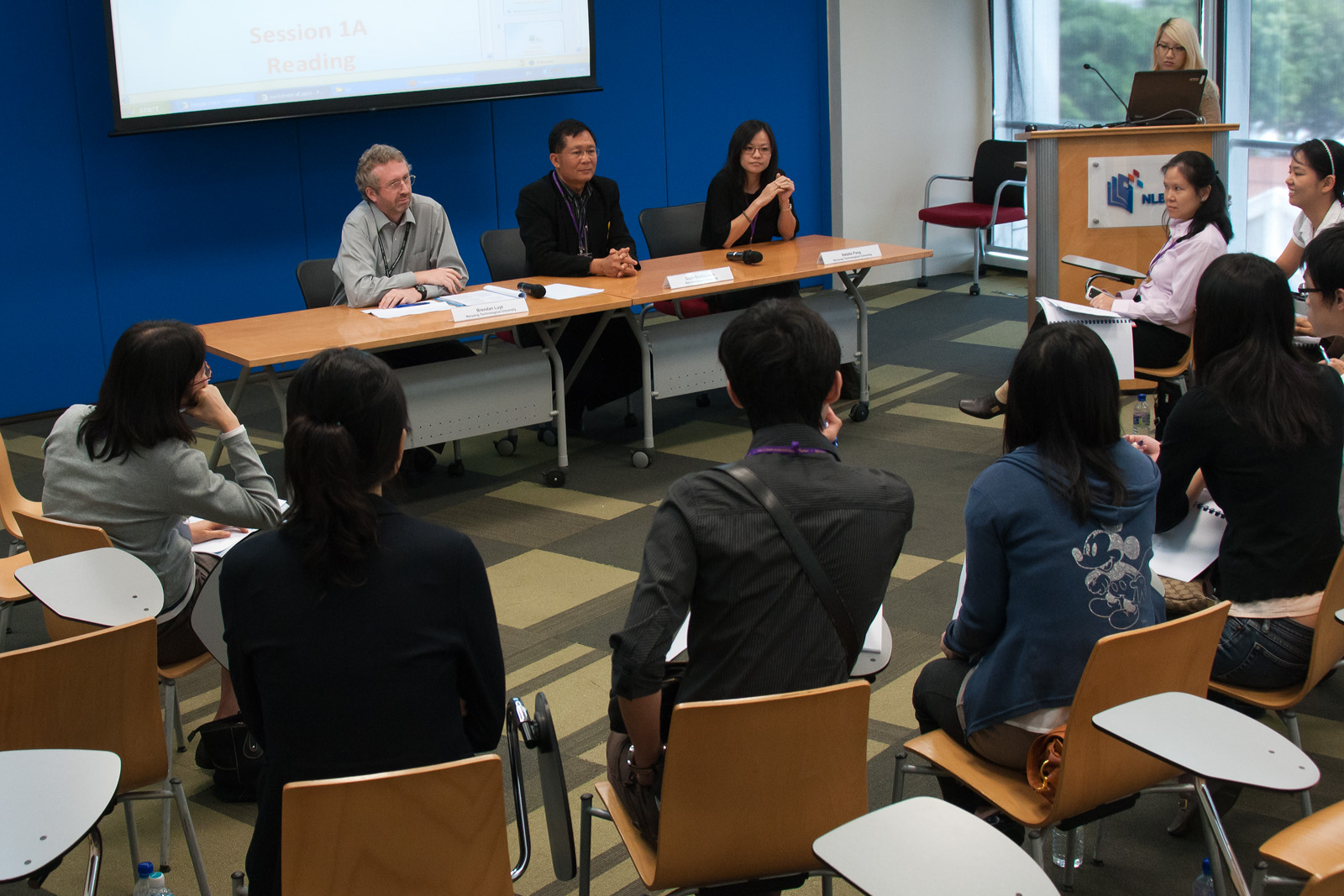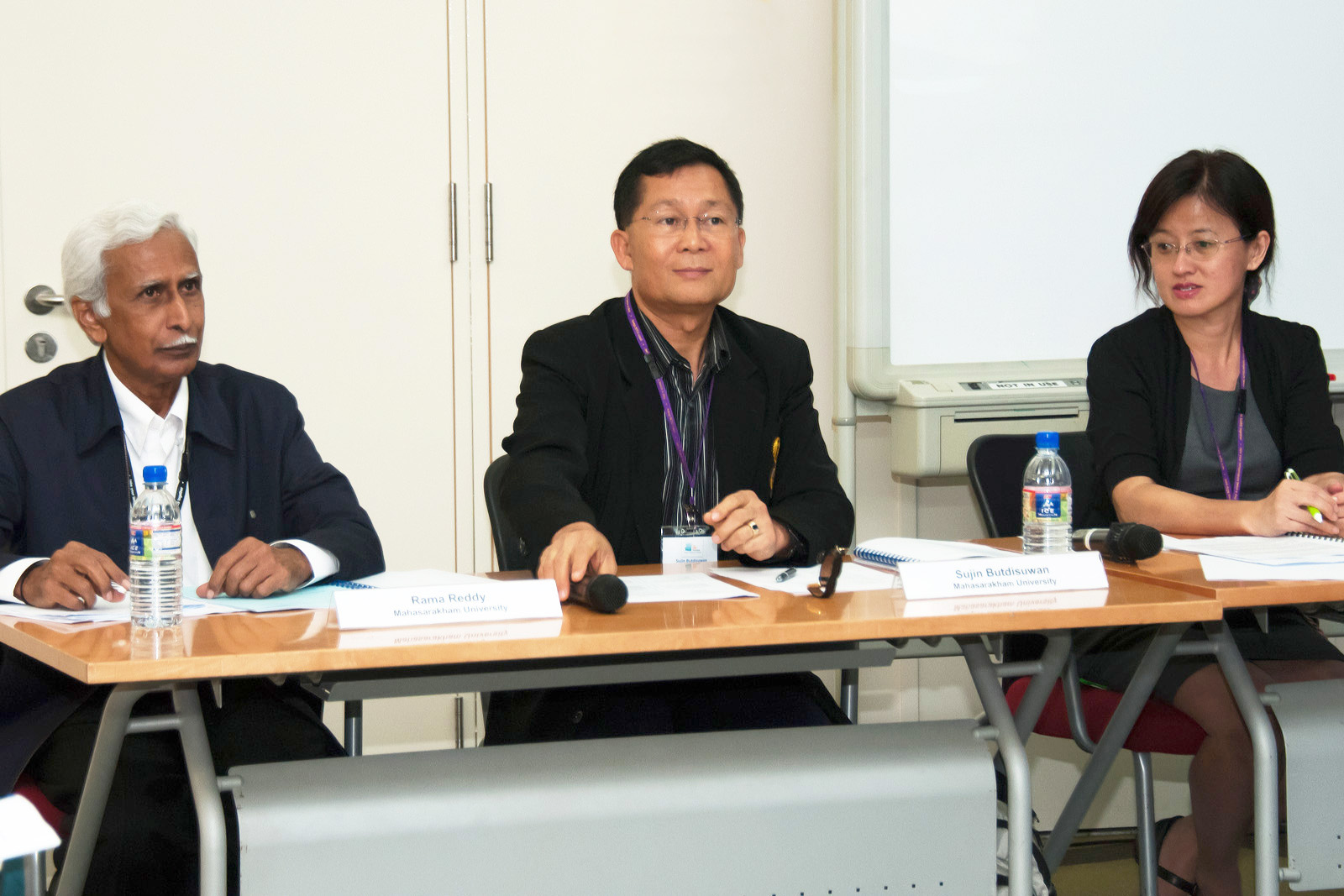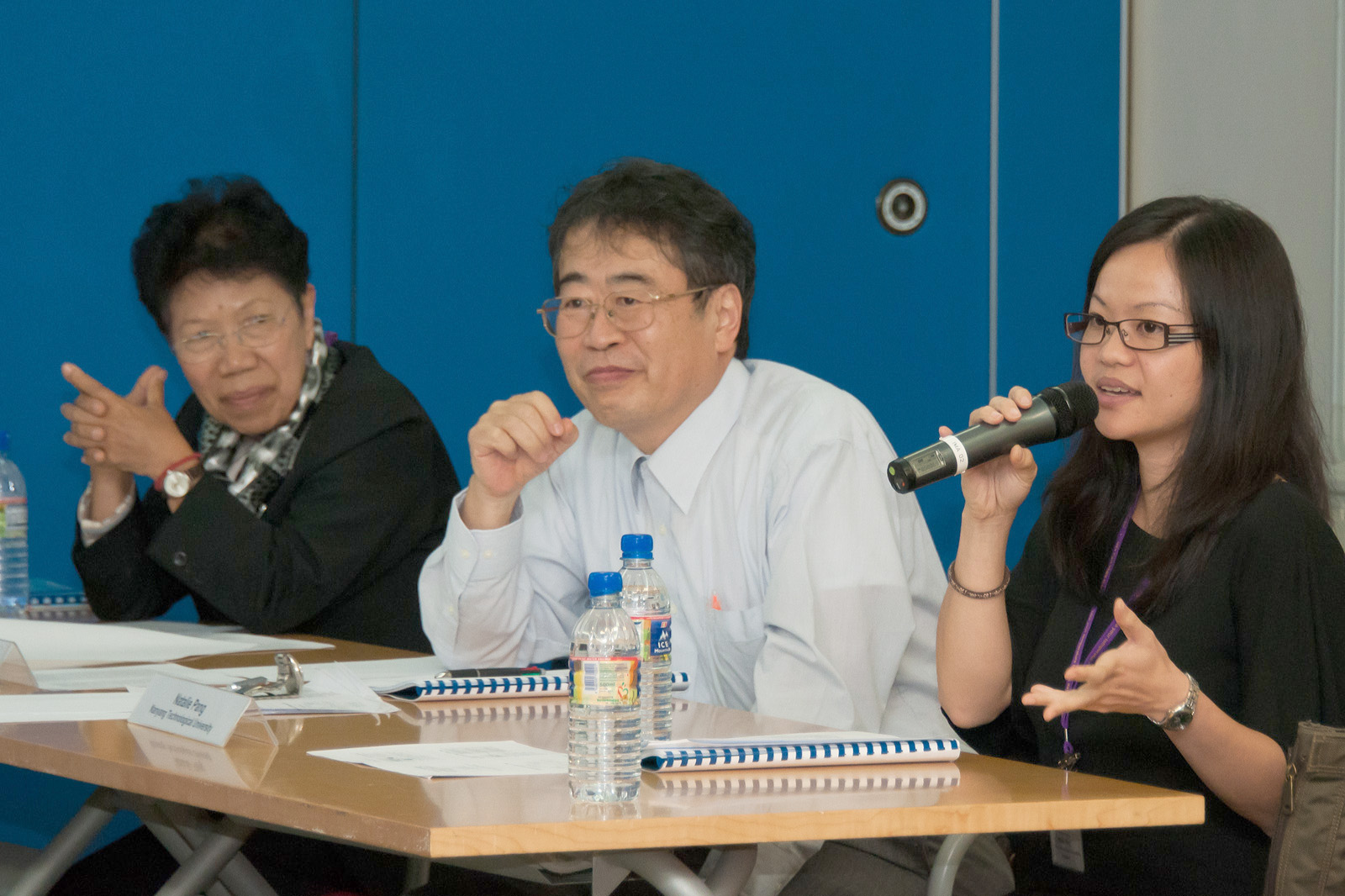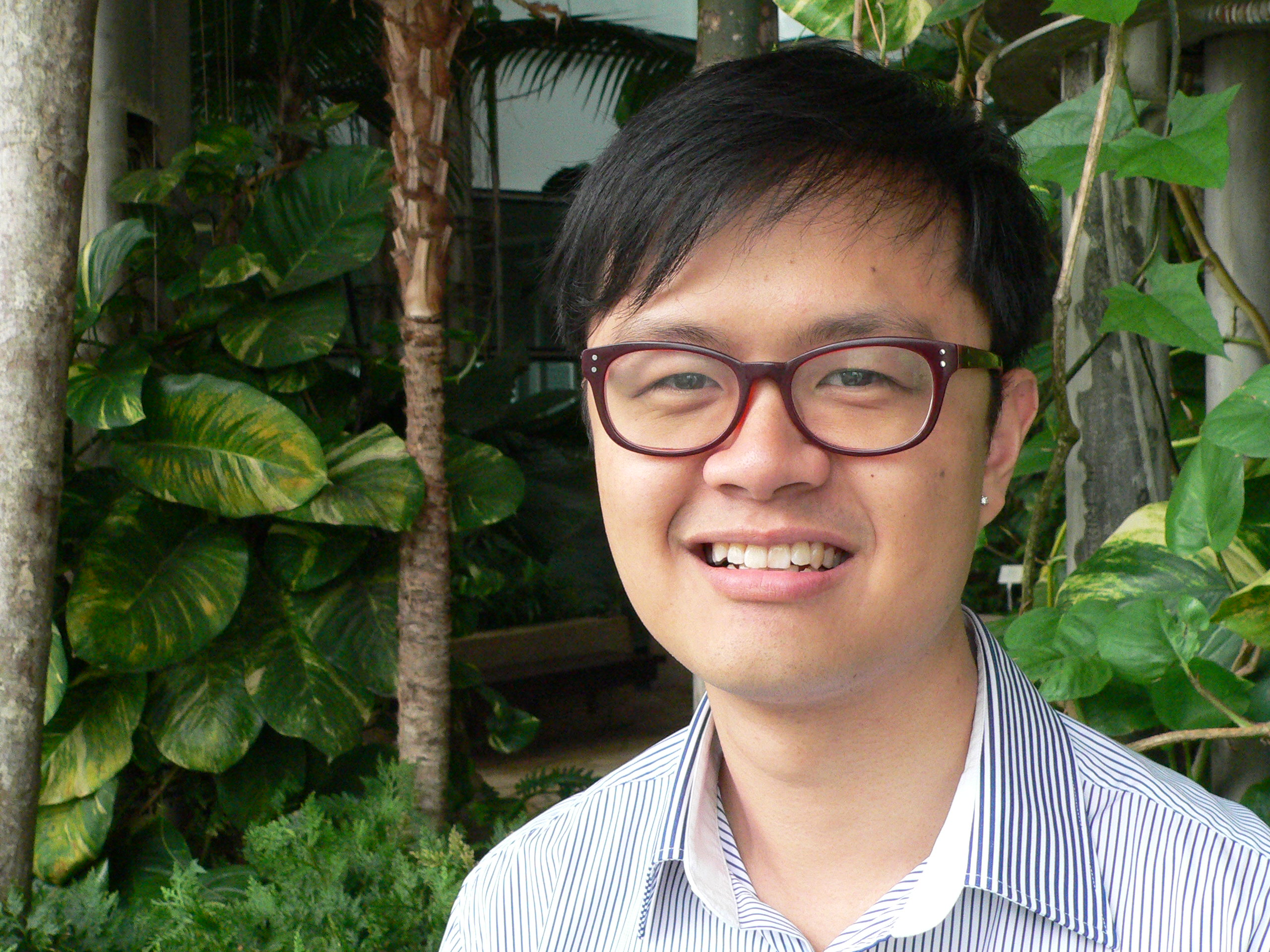Crossing Borders, Connecting Ideas
Research Associate Yee Yeong Chong presents what was shared at the 3rd Taiwan-Singapore-Thailand Workshop on Library and Information Research.

Embedded within the nexus of libraries and information science is a common commitment to creating accessibility to knowledge. Information science’s substantive focus has always been the facilitation of knowledge discovery that has both influenced and been influenced by librarianship. Concomitantly, the third instalment of the Taiwan-Singapore-Thailand Workshop on Library and Information Research is a timely reminder of this symbiotic relationship between library professionals and information science researchers, and the need to work closely to improve information services in Southeast Asian countries.
Co-organised by the National Library Board, Singapore (NLB) and the Wee Kim Wee School of Communication and Information, Nanyang Technological University (NTU), this year’s workshop saw 65 participants from Singapore, Taiwan and Thailand sharing insights and research findings on the emerging developments in library and information science (LIS) in their respective countries. Unsurprisingly, the recurrent motif of the workshop proceedings was cross-national research collaboration. In the spirit of forging such linkages, several breakout sessions were organised to facilitate regional dialogues on various research themes:
• Reading
• Developments in Information Science
• e-Learning and Education
• Informational Literacy
• Knowledge Management
• Publishing and Scholarly Communication
• Heritage Informatics
• Digital Libraries
As a public institution committed to fostering vibrant learning communities, NLB also extended ideapolis, an online research collaboratory, to workshop participants as a platform for their projects. Altogether, 26 papers were presented with three collaborative projects germinated through the discussions. Here are some of the highlights of the two-day workshop.
Reading, e-Learning and Education
Notable presentations included three separate analyses of intergenerational reading habits by Sujin Butdisuwan (Mahasarakham University), and two other research teams from NTU and Khon Kaen University. The use of other knowledge transmission mechanisms such as e-learning and social media tools as engines for the knowledge economy, were also discussed, in particular, the papers by Christopher Khoo and Chang Yun-Ke (NTU) on digital repository of learning objects, as well as Cha-Fei Hung’s (National Taiwan Normal University) evaluation of open courseware usage by the university’s students. The world’s most popular social networking website, Facebook, was also the subject of inquiry in two different papers: one by Tranakchit Mangkang (Mahasarakham University), and the other by Kung-Ying Lee (National Taiwan Normal University), which discussed the evolution of pedagogy in Thai classrooms and the changing landscape of library services vis-à-vis social media respectively.

Knowledge Management and Scholarly Communication
With the growing emphasis on risk management in organisational development, the importance of knowledge management processes has also attracted substantial attention from scholars in recent times. Capturing the essence of these emerging issues was the presentation by Xue Zhang, who discussed information literacy as a knowledge enabler for workers performing horizon scanning and risk assessment. Such shifts in the informational landscape also suggest that knowledge facilitators are experiencing shifts in the conduct of their professions.
In the realm of scholarly communications, Wei-Ning Cheng (National Taiwan Normal University) illustrated how university libraries are becoming increasingly important nodes in the information network, not only as consumers of publications but also as publishers, with a distinct focus on scholarly electronic journals. Scholars are also acknowledging the intrinsic value of open-access publications; papers by Rama Reddy and Laksana Thaotip (Mahasarakham University) separately highlighted how university faculty in Asia are embracing open-access publishing and both called on workshop participants to partake in the joint survey on scholarly communications system and creation of an Asian open-access LIS journal respectively.

Heritage Informatics and Digital Libraries
The connectivity and interactivity afforded by information technologies are also changing the way in which knowledge, cultural traditions and histories are shared and transmitted. Pointing to cultural heritage information management and circulation techniques. Natalie Pang (NTU) highlighted emerging techniques in participatory curatorship and community-based archival practices. This complemented the presentation by Soh Lin Li (NLB) on the Singapore Memory Project, a national effort piloted to document and preserve Singaporeans’ stories and experiences.

Such information management techniques also point to the role automation plays in exponentially increasing data transfer speeds. Development of information systems to facilitate community management and institutional repositories for university research projects were the subjects of two case studies presented by Watcharee Phetwong, Phadet Jinda and Lampang Manmart (Khon Kaen University). The former described the potential improvements to the decision-making process for local government and policy planners working on development issues at the provincial level in Thailand. In the latter study, data on current needs was compiled and the design of institutional repositories for the Rajamangala University of Technology, Thailand, was based on this.
Looking Ahead
The diversity of positions has traditionally been recognised as the hallmark of academic exchange. This was evident in the way the participants from the three countries added contextual richness, subject matter expertise and praxis to the research projects that would otherwise be limited to their specific contexts. Reaffirming the impression that the Taiwan-Singapore-Thailand workshop differs from typical scholarly conferences, participants with similar interests were urged to unite in research collaboration.
At the networking dinner following the first day’s proceedings, The Pod at the National Library was transformed into a pastiche of song, dance and musical performances as some delegates and members of the academic community took to the stage, while others enjoyed dinner and the panoramic view of the Singapore cityscape. With new friendships forged and old ones strengthened, the 3rd Taiwan-Singapore-Thailand Workshop renewed my confidence that the next such event would yield even greater collaborative results in the burgeoning field of Southeast Asian LIS research.
To view paper abstracts and the workshop proceedings, visit https://www.idea-polis.net/about

Research Associate
Government & Business Information Services
National Library

